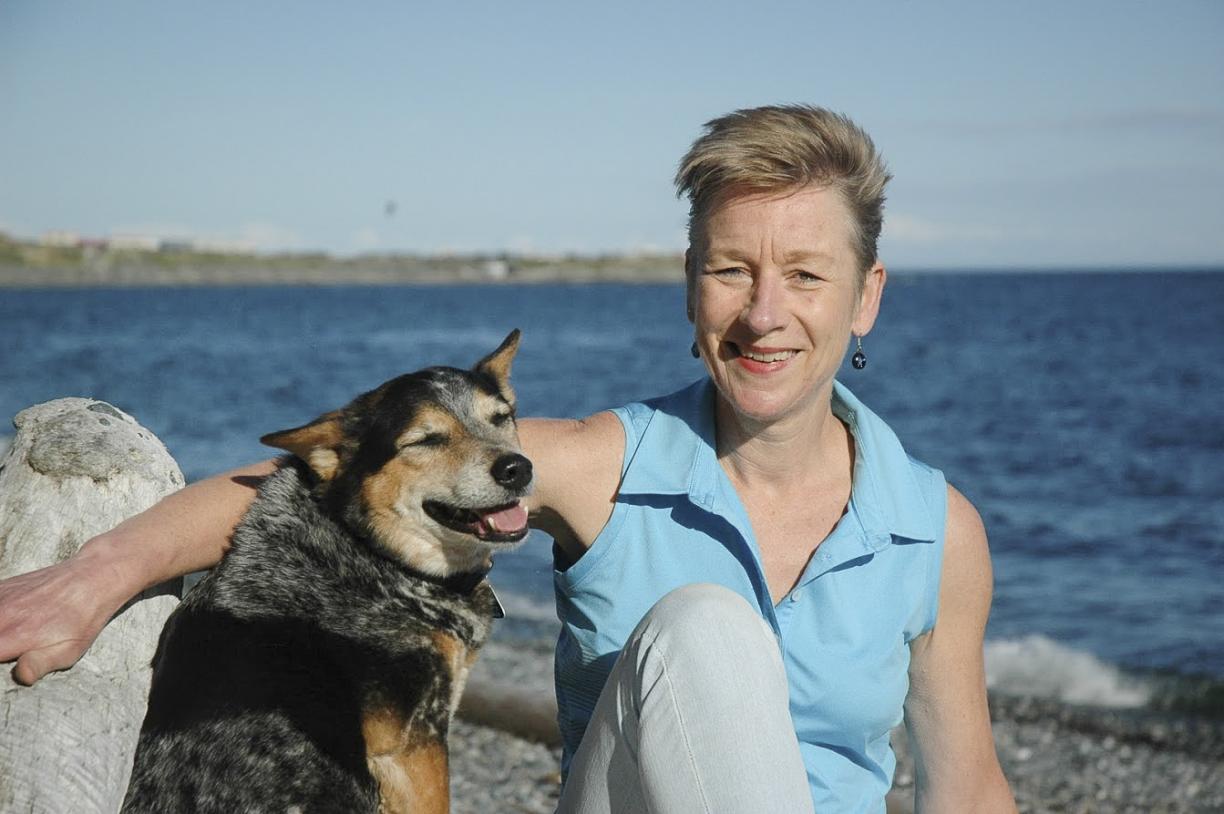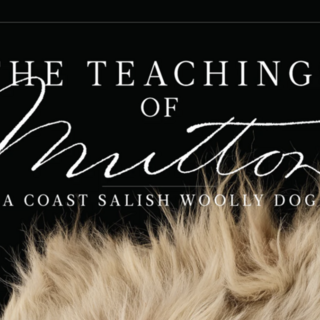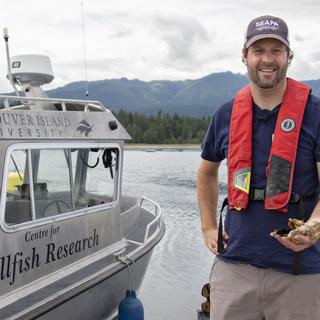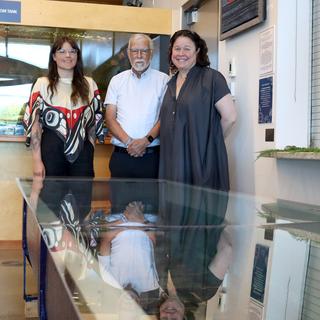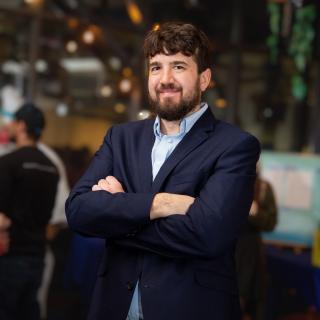Debra Hellbach has been steering the helm as Manager of VIU’s Centre for Seafood Innovation (CSI) since April 2021.
She brings a wealth of knowledge, including 35 years’ experience in the food processing industry, holds a degree in Food Science from the University of British Columbia, a Master’s degree in Professional Communication from Royal Roads University and was a Mitacs intern.
“As Carl Butterworth, Manager of VIU’s Deep Bay Marine Field Station, described it, the Centre for Seafood Innovation is my capstone project,” says Hellbach.
In 2017 she received the BC Food and Beverage Association Food Industry Leadership Award and in 2018 received the Outstanding Regional Partnership Award from Diabetes Canada for her work in food skills development with Indigenous communities.
VIU’s Centre for Seafood Innovation is one of three BC food hubs funded by the BC government last March, bringing the provincial total to 12. The centre’s mandate is to create new opportunities for BC seafood businesses and to strengthen food security in the province.
Hellbach shares some insights into her role, the centre’s mandate and future plans.
You bring a wealth of experience, with a lengthy background in the food processing industry as well as professional communications training. Can you share a bit about your background and why you chose to move into this new position?
Helping food entrepreneurs make and market good food is my passion, and the seafood industry needs help. I have worked for private industry, federal and provincial governments, and as a private consultant.
What are your immediate plans for the Centre for Seafood Innovation?
I have many plans for the Centre for Seafood Innovation. While it may appear that I am employing a “throwing seaweed against the wall to see what sticks” strategy, I am following our strategic plan and mandate to create new opportunities for BC seafood businesses and strengthen food security. My immediate plans are to identify applied research projects that involve partnerships between the food industry, researchers, students and funders. Up until recently the centre was basically me. Olivia Alexander started in October on a three-quarter-time basis helping with research and public education projects. I am constantly seeking avenues to build CSI’s capacity.
How is the Centre interacting with the wider VIU community?
CSI started interacting with the wider VIU community right from the get-go! My intent is to provide applied research and education opportunities to VIU instructors, researchers and students. I want people to understand that food is not optional, we need to eat and therefore we must help the food industry thrive. For instance, CSI is working with Culinary Arts on the Oyster Challenge, where culinary students learn about the food system, novel processes (to address labour shortages) and create new products to increase the consumption of BC seafood.
What is a food hub and what role do they play in supporting local food systems and industry?
To provide context, the Centre for Seafood Innovation is one of 12 BC food hubs funded through the BC Ministry of Agriculture, Food and Fisheries’ food hub network. In this context, a “food hub” is defined as a shared-use food and beverage processing facility that offers food businesses access to commercial processing space, equipment, expertise and resources to support business development and growth. The CSI offers shared use provincially inspected kitchen space at the Deep Bay Marine Field Station and expertise and resources to support food businesses.
The Centre for Seafood Innovation’s mandate is to harness existing and emerging expertise, infrastructure and programs to facilitate the development of activities that address current and future industry needs. What does this mean? And how will you accomplish this?
Collaboration is key. There is far too much to do and too few resources to get what needs to be done, done. For example, HPP Canada, a company providing high-pressure processing to the BC food industry, has excess capacity. Rather than invest in high-cost equipment we are partnering with HPP Canada. Another example, the Food Business Refresh program, taught food entrepreneurs how to pivot and implement a new business plan because of the pandemic. We will harness expertise and build on programs like Refresh to help seafood entrepreneurs.

